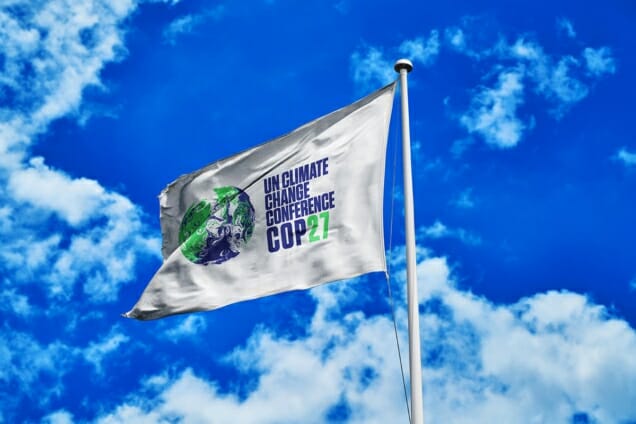Plans to provide more funding for developing Asian countries to transition from coal into more sustainable fuel are being discussed at the 27th United Nations Climate Change Conference (COP27).
Germany has been in talks with Indonesia and Vietnam to accelerate the phase-out of their coal-fired power plants through a Just Energy Transition Partnership, Climate Action Network South-east Asia director and regional coordinator Nithi Nesadurai told The Business Times on the sidelines of the conference in Sharm el-Sheikh, Egypt. This comes one year after a similar venture worth US$8.5 billion between South Africa and several high-income countries was inked at last year’s COP.
Separately, the Asian Infrastructure Investment Bank and the Global Energy Alliance for People and Planet announced on Tuesday (Nov 8) that it would be mobilising US$1 billion to finance the green energy transition and renewable energy projects in the region.
These developments point to the increasing importance of “just transition” financing at the international level. A just transition refers to the goal of ensuring social and economic inclusivity and development alongside climate objectives, The Business Times cited.
Top leaders from the Association of Southeast Asian Nations (Asean) have been major proponents of this approach amid growing recognition of the need to mitigate the negative impacts of decarbonisation on economies and communities. This is especially so for emerging markets, as they tend to have a higher reliance on fossil fuels.
Indonesia’s finance minister Sri Mulyani Indrawati has said that the country’s shift to net zero needs to be just and affordable, while Malaysia’s central bank said that an orderly and just transition is crucial to avoid major economic and societal impacts and reap green growth opportunities.
However, such financing avenues remain limited for companies in Asean.
Silverius Oscar Unggul, vice-head of the Indonesian Chamber of Commerce and Industry, said: “Sometimes, financiers really want to fund when we are already green. But it’s precisely because we are transitioning (that) is why we need the funds.
“If we were already green, we (might not) need the financing because the market and revenue is already there.”
Elim Sritaba, chief sustainability officer at Asia Pulp and Paper (APP), said that financial institutions tend to base their lending criteria on international standards that are not suitable for developing countries. For example, recommendations from the Science-Based Targets Initiative states that companies are required to set Scope 3 targets if it makes up at least 40 per cent of its total emissions.
But Elim noted that it is difficult to set that target, as many of its suppliers in Indonesia are not even aware about the need to commit to net zero. The Indonesian pulp and paper manufacturer is looking to transition four of its coal-powered mills into biomass.
Cost is also a concern, as prices of sustainable biofuels would likely go up due to higher demand, making it even more expensive for companies to transition, she said.
Ramesh Subramaniam, director general for South-east Asia at the Asian Development Bank (ADB), said that the main factors in hindering transition financing are investors’ resistance to investing in ‘dirty’ assets, trust issues, and a lack of policy and legal certainty.
“It’s not just enough if one plant comes in and shuts down if, in the place of that one plant, another coal plant comes. That obviously is a zero-sum game. So investors would want to make sure that there is an enabling environment which says no more new coal,” he said.
Compounding the problem is that the absence of an internationally agreed-upon definition of what constitutes transition financing, much less one with just transition considerations incorporated, said Climate Action Network’s Nesadurai.
However, Nesadurai said that financiers and investors need not have to wait for such standards to be set up before providing such lending.
Transition conditions and social safeguards for workers, women, children or indigenous peoples, can already be incorporated into financing agreements after engagements with civil society organisations and local communities.
ADB has also been piloting a financing structure, called the Energy Transition Mechanism (ETM), with Indonesia, Philippines and Vietnam that aims to bring about the early retirement of their coal-fired power plants. The mechanism, initially launched a year ago at COP26, offers concessional lending in the form of soft loans or grant money. If this proof of concept proves to be successful, it could give confidence to investors and philanthropies.
The ETM also incorporates safeguards and just transition, such as the scoping of environmental and socio-economic issues.
Given that funding promised under the Just Transition Energy Partnership with South Africa was on hold for one year, until the country’s coal transition path got the green light on Tuesday, it might be worthwhile for Asean companies to explore these other options instead.









